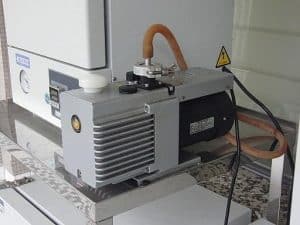A vacuum pump is used to suck air or other gases out of a confined space to create a vacuum. Vacuum pumps have many applications in a wide variety of industries worldwide. Often, if your vacuum pump doesn’t work efficiently, the function of the whole machine suffers. Here are some tips for keeping your pump and thus your equipment working well.

Lubricate Thoroughly
No matter what kind of Busch vacuum pumps you have, there are likely parts that need oiling on a regular basis. In a typical mechanical pump, the oil level needs to be checked daily. Even in a dry pump, the bearings need to be oiled once a year or after every 3,000 hours of use. Proper lubrication keeps all the moving parts as friction-free as possible.
Change Filters
The filter in your vacuum pumps need to be changed every time you change the oil. When you change your oil depends on many factors. Generally speaking, you want to change the oil and filter every 100 hours of operation. If the fluid in the pump becomes contaminated or there are signs of condensation, however, you should go ahead and change the oil and filter even if you haven’t reached the 100-hour mark.
Inspect Moving Parts
When you inspect your vacuum pump, make sure the motor is rotating in the correct direction (as marked on the side of the motor). The rotor should be clean and able to turn freely. The beater bars, or vanes, may become cracked with regular wear and tear. Inspect them once a year, and replace the whole set if you see imperfections.
To keep your equipment running efficiently, you need to perform regular maintenance on your vacuum pump. If the pump is lubricated and well and all the parts work how they are supposed to work with minimal friction, your equipment is more likely to remain reliable longer. Additionally, view HVAC vacuums for insights into specialized vacuum applications in heating, ventilation, and air conditioning systems.






